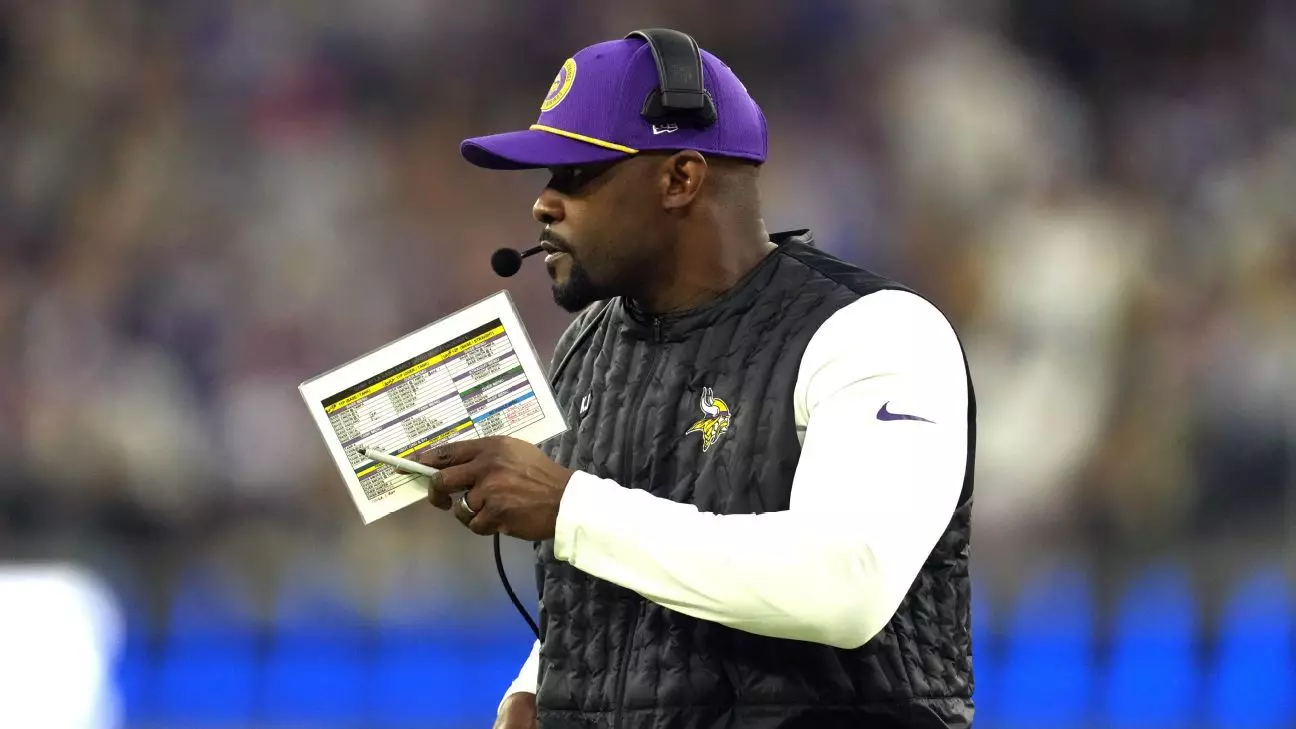In an era where transparency and accountability are paramount, the recent ruling by the 2nd U.S. Circuit Court of Appeals marks a pivotal shift in how institutionalized discrimination is addressed within the NFL. By explicitly criticizing the league’s arbitration scheme, which traditionally shielded its leadership — particularly Commissioner Roger Goodell — from unbiased scrutiny, the court has challenged the league’s longstanding efforts to preserve a facade of fairness. This decision is more than a legal victory for Brian Flores; it is a wake-up call for the entire sports industry and perhaps even corporate America at large. The court underscored that the NFL’s arbitration policies were inherently biased, constructed to favor league interests at the expense of justice. This acknowledgment exposes the league’s attempt to conceal systemic issues behind a curtain of procedural formality, which, as the court pointed out, is ultimately a sham with little regard for fairness or fairness’s principles.
The court’s stance reverberates beyond just the legal technicalities; it signals an acknowledgment that institutional discrimination cannot be masked through superficial processes. By refusing to accept functions that are “arbitration in name only,” the judiciary threw down the gauntlet, insisting that systemic racial biases must be confronted head-on, not buried under procedural delays or biased arbitration clauses. This ruling signals that the NFL’s defenses against allegations of racial discrimination are not just ethically questionable but legally indefensible. It also reinforces the notion that corporate and professional institutions, no matter how powerful, are accountable when their practices perpetuate inequality.
Flores’ Bold Fight: A Catalyst for Change
Brian Flores’ courageous decision to take on the NFL signifies more than personal risk; it embodies a collective demand for justice and reform. His lawsuit, which accused the league of racial bias in hiring practices, shone a spotlight on a deeply ingrained issue afflicting the league and, arguably, the broader world of professional sports. The fact that more coaches have joined the suit demonstrates that Flores’ stand resonates with others who have faced similar discrimination. His willingness to risk his career highlights a level of integrity that is rare in such high-stakes environments.
Flores’ journey underscores a vital truth: systemic racism is not just about individual acts of bias, but a pervasive, institutional problem that requires structural overhaul. His case is a reminder that marginalized groups often bear disproportionate burdens, battling not only overt discrimination but also covert mechanisms—such as biased arbitration processes—that serve to silence or diminish their voices. Flores’ fight is also an act of reclaiming agency in a system that has historically marginalized Black professionals, challenging the league to confront its own failings rather than dismiss them or sweep them under the rug.
Furthermore, Flores’ story exemplifies resilience. His claims are rooted in personal experiences of racial discrimination, yet his objective extends beyond individual justice — it seeks to dismantle an entrenched culture that maintains racial hierarchies. His presence in the courtroom and his refusal to be silenced serve as a clarion call for greater accountability and meaningful reform within the NFL and similar institutions.
The Broader Implications for Sports and Society
This legal victory extends beyond the football field; it reveals the importance of holding powerful institutions accountable for their role in perpetuating social inequalities. The NFL, often perceived as a microcosm of American society, reflects many of its racial dynamics. When the court criticizes the league’s arbitration process, it underscores how systemic biases can be embedded behind bureaucratic barriers, effectively marginalizing voices calling for justice.
The ruling also challenges organizations to rethink their conflict resolution mechanisms. Instead of concealment and biased processes, there needs to be a genuine commitment to fairness, transparency, and inclusivity. The NFL must ask itself whether its policies foster equity or merely serve as gatekeeping tools for those in power. If the league truly aims to be progressive, it must accept that old shields of white-dominated leadership and biased arbitration practices are no longer tenable. The court’s decision is a stark reminder that the legal system will no longer tolerate corporate defenses rooted in unfair practices that silence dissent and protect systemic discrimination.
Finally, Flores’ case illuminates the transformative power of legal advocacy in challenging societal norms. It demonstrates that persistent activism combined with judicial support can threaten the status quo and propel meaningful change. As more corporations and leagues observe this landmark decision, it is inevitable that their internal processes will come under greater scrutiny, pushing them toward reform rather than further resistance. Ultimately, this case is an indictment of a flawed system but also an opportunity—a catalyst to reimagine what fairness and justice truly mean within the realm of professional athletics and beyond.

